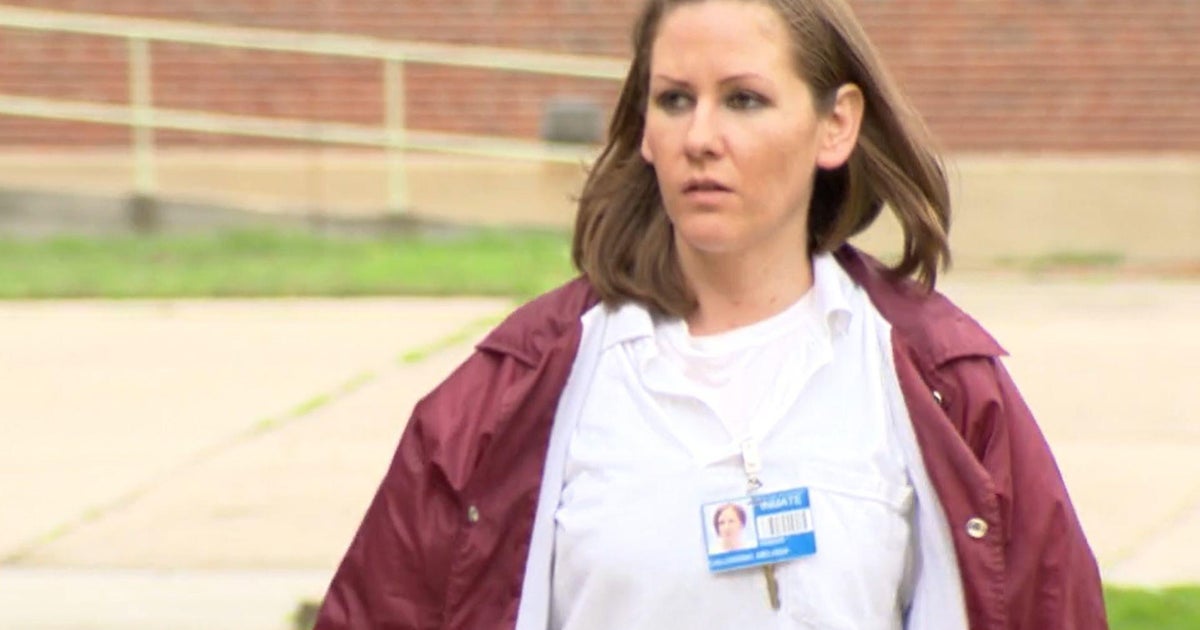Health
What Haunts Child Abuse Victims? The Memory, Study Finds

For generations, our society has vacillated about how best to heal people who experienced terrible things in childhood.
Should these memories be unearthed, allowing their destructive power to dissipate? Should they be gently molded into something less painful? Or should they be left untouched?
Researchers from King’s College London and the City University of New York examined this conundrum by conducting an unusual experiment.
Researchers interviewed a group of 1,196 American adults repeatedly over 15 years about their levels of anxiety and depression. Unbeknown to the subjects, 665 of them had been selected because court records showed they had suffered mistreatment such as physical abuse, sexual abuse or neglect before age 12.
Not all of them told researchers that they had been abused, though — and that was linked to a big difference.
The 492 adults who reported having been mistreated and were in court records substantiating the abuse had significantly higher levels of depression and anxiety than a control group with no documented history of abuse, according to the study, which was published last week in JAMA Psychiatry. The 252 subjects who reported being abused without court records reflecting it also had higher levels.
But the 173 subjects who did not report having been abused, despite court records that show that it occurred, had no more distress than the general population.
The findings suggest how people frame and interpret events in their early childhood powerfully shapes their mental health as adults, said Dr. Andrea Danese, a professor of child and adolescent psychiatry at King’s College London and one of the study’s joint authors.
“It goes back to almost the stoic message, that it’s what you make of the experience,” he said. “If you can change how you interpret the experience, if you feel more in control at present, then that is something that can improve mental health in the longer term.”
In a meta-analysis of 16 studies of childhood maltreatment published in 2019, Dr. Danese and colleagues found that 52 percent of people with records of childhood abuse did not report it in interviews with researchers, and 56 percent of those who reported it had no documented history of abuse.
This discrepancy could be partly because of problems in measurement — court records may not have all abuse history — and may also reflect that self-reporting of abuse is influenced by a person’s levels of anxiety and depression, Dr. Danese said.
“There are many reasons why people may, in some ways, forget those experiences, and other reasons why others might misinterpret some of the experiences as being neglect or abuse,” he said.
But even considering these caveats, he said, it was notable that adults who had a documented history of having been abused but did not report it — because they had no memory of the events, interpreted them differently or chose not to share those memories with interviewers — seemed healthier.
“If the meaning you give to these experiences is not central to how you remember your childhood so you don’t feel like you need to report it, then you are more likely to have better mental health over time,” he said.
Traumatic childhood experiences have been the subject of some of psychiatry’s most pitched battles. Sigmund Freud postulated early in his career that many of his patients’ behaviors indicated a history of childhood sexual abuse but later backtracked, attributing them to subconscious desires.
In the 1980s and 1990s, therapists used techniques like hypnosis and age regression to help clients uncover memories of childhood abuse. Those methods receded under a barrage of criticism from mainstream psychiatry.
Recently, many Americans have embraced therapies designed to manage traumatic memories, which have shown to be effective in the treatment of post-traumatic stress disorder. Experts increasingly advocate screening patients for adverse childhood experiences as an important step in providing physical and mental health treatment.
The new findings in JAMA Psychiatry suggest therapy that seeks to alleviate depression and anxiety by trying to unearth repressed memories is ineffective, said Dr. Danese, who works at the Institute of Psychiatry, Psychology & Neuroscience at King’s College.
But he cautioned that the results of the study should not be interpreted as endorsing the avoidance of distressing memories, which could make them “scarier” in the long term. Instead, they point to the promise of therapies that seek to “reorganize” and moderate memories.
“It’s not about deleting the memory, but having the memory and being more in control of that so that the memory feels less scary,” he said.
Memory has always posed a challenge in the field of child protection because many abuse cases involve children below the age of 3, when lasting memories begin to form, said David Finkelhor, the director of the Crimes Against Children Research Center at the University of New Hampshire, who was not involved in the study.
In treating people with histories of having been abused, he said, clinicians must rely on sketchy, incomplete and changing accounts. “All we have is their memories, so it’s not like we have a choice,” he said.
He warned against concluding that forgotten maltreatment has no lingering effect. Early abuse may emerge through what he described as “residues” — difficulty in modulating emotions, feelings of worthlessness or, in the case of sexual abuse victims, the urge to provide sexual gratification to others.
Elizabeth Loftus, a psychologist at the University of California, Irvine, and a prominent skeptic of the reliability of memories of abuse, noted that the study stops short of another conclusion that could be supported by the data: Forgetting about abuse might be a healthy response.
“They could have said, people who don’t remember in some ways are better off, and maybe you don’t want to tamper with them,” she said. “They don’t say that, and that, to me, is of great interest.”

Health
Semaglutide Pills and Injections Vs. Drops: Experts Weigh In | Woman's World

Sign Up
Create a free account to access exclusive content, play games, solve puzzles, test your pop-culture knowledge and receive special offers.
Already have an account? Login
Use left and right arrow keys to navigate between menu items.
Use escape to exit the menu.
Health
Jennifer Hudson Lost 80-Lbs Without Depriving Herself—Learn Her Secrets

Sign Up
Create a free account to access exclusive content, play games, solve puzzles, test your pop-culture knowledge and receive special offers.
Already have an account? Login
Use left and right arrow keys to navigate between menu items.
Use escape to exit the menu.
Health
Kennedy’s Plan for the Drug Crisis: A Network of ‘Healing Farms’

Though Mr. Kennedy’s embrace of recovery farms may be novel, the concept stretches back almost a century. In 1935, the government opened the United States Narcotic Farm in Lexington, Ky., to research and treat addiction. Over the years, residents included Chet Baker and William S. Burroughs (who portrayed the institution in his novel, “Junkie: Confessions of an Unredeemed Drug Addict”). The program had high relapse rates and was tainted by drug experiments on human subjects. By 1975, as local treatment centers began to proliferate around the country, the program closed.
In America, therapeutic communities for addiction treatment became popular in the 1960s and ’70s. Some, like Synanon, became notorious for cultlike, abusive environments. There are now perhaps 3,000 worldwide, researchers estimate, including one that Mr. Kennedy has also praised — San Patrignano, an Italian program whose centerpiece is a highly regarded bakery, staffed by residents.
“If we do go down the road of large government-funded therapeutic communities, I’d want to see some oversight to ensure they live up to modern standards,” said Dr. Sabet, who is now president of the Foundation for Drug Policy Solutions. “We should get rid of the false dichotomy, too, between these approaches and medications, since we know they can work together for some people.”
Should Mr. Kennedy be confirmed, his authority to establish healing farms would be uncertain. Building federal treatment farms in “depressed rural areas,” as he said in his documentary, presumably on public land, would hit political and legal roadblocks. Fully legalizing and taxing cannabis to pay for the farms would require congressional action.
In the concluding moments of the documentary, Mr. Kennedy invoked Carl Jung, the Swiss psychiatrist whose views on spirituality influenced Alcoholics Anonymous. Dr. Jung, he said, felt that “people who believed in God got better faster and that their recovery was more durable and enduring than people who didn’t.”
-
/cdn.vox-cdn.com/uploads/chorus_asset/file/25822586/STK169_ZUCKERBERG_MAGA_STKS491_CVIRGINIA_A.jpg)
/cdn.vox-cdn.com/uploads/chorus_asset/file/25822586/STK169_ZUCKERBERG_MAGA_STKS491_CVIRGINIA_A.jpg) Technology1 week ago
Technology1 week agoMeta is highlighting a splintering global approach to online speech
-

 Science1 week ago
Science1 week agoMetro will offer free rides in L.A. through Sunday due to fires
-
/cdn.vox-cdn.com/uploads/chorus_asset/file/23935558/acastro_STK103__01.jpg)
/cdn.vox-cdn.com/uploads/chorus_asset/file/23935558/acastro_STK103__01.jpg) Technology1 week ago
Technology1 week agoAmazon Prime will shut down its clothing try-on program
-

 News1 week ago
News1 week agoMapping the Damage From the Palisades Fire
-
/cdn.vox-cdn.com/uploads/chorus_asset/file/25826211/lorealcellbioprint.jpg)
/cdn.vox-cdn.com/uploads/chorus_asset/file/25826211/lorealcellbioprint.jpg) Technology7 days ago
Technology7 days agoL’Oréal’s new skincare gadget told me I should try retinol
-
/cdn.vox-cdn.com/uploads/chorus_asset/file/25832751/2192581677.jpg)
/cdn.vox-cdn.com/uploads/chorus_asset/file/25832751/2192581677.jpg) Technology3 days ago
Technology3 days agoSuper Bowl LIX will stream for free on Tubi
-

 Business5 days ago
Business5 days agoWhy TikTok Users Are Downloading ‘Red Note,’ the Chinese App
-
/cdn.vox-cdn.com/uploads/chorus_asset/file/25835602/Switch_DonkeyKongCountryReturnsHD_scrn_19.png)
/cdn.vox-cdn.com/uploads/chorus_asset/file/25835602/Switch_DonkeyKongCountryReturnsHD_scrn_19.png) Technology1 day ago
Technology1 day agoNintendo omits original Donkey Kong Country Returns team from the remaster’s credits















